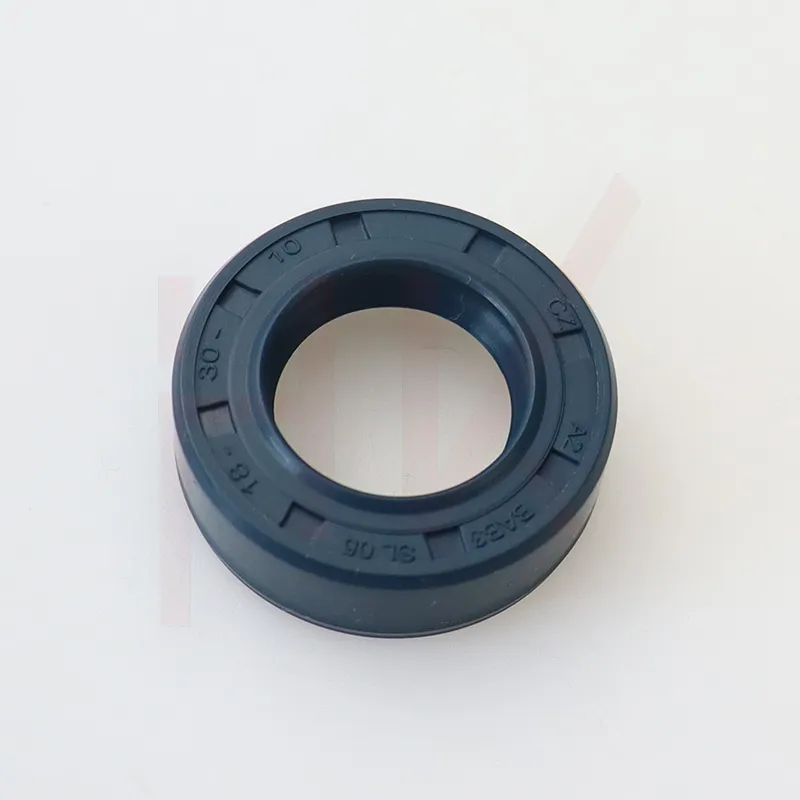Лип . 29, 2024 03:38 Back to list
Exploring the Benefits and Applications of Single Acting Piston Seals in Modern Machinery
Understanding Single Acting Piston Seals A Comprehensive Overview
Single acting piston seals are critical components in various hydraulic and pneumatic systems. They play a fundamental role in ensuring the efficient operation of machinery and equipment by preventing fluid leakage and maintaining pressure within the system. This article delves into the design, functionality, applications, and maintenance considerations surrounding single acting piston seals.
Design and Functionality
Single acting piston seals are designed to allow fluid motion in one direction while preventing backflow. They are commonly utilized in applications where the piston only requires sealing on one side; the opposite side may vent to the atmosphere or a reservoir. The seal typically consists of an elastomeric material, which provides flexibility and the ability to conform to the surface of the cylinder.
The primary components of a single acting piston seal include the sealing element itself and the energizer, which ensures the seal maintains adequate contact with the cylinder wall. The seal functions by creating a pressure differential that pushes the sealing element against the cylinder, effectively blocking any fluid from escaping through the gap.
Applications
Single acting piston seals find applications across a wide range of industries including automotive, aerospace, manufacturing, and construction. In hydraulic systems, they are used in equipment such as hydraulic cylinders, where they facilitate the movement of machinery while maintaining the integrity of hydraulic fluid. In pneumatics, these seals are essential in air-operated devices, ensuring dependable performance and preventing air leakage.
In the automotive industry, single acting piston seals are commonly found in brake systems, where they are vital for maintaining pressure within the braking mechanism
. Their reliability and durability under varying temperatures and pressures make them suitable for numerous applications.single acting piston seal

Material Selection
Choosing the right material for single acting piston seals is crucial for optimal performance. Common materials include nitrile rubber (NBR), fluorocarbon (FKM), and polyurethane, each offering unique properties suited to different operating conditions. For instance, NBR is excellent for general-purpose applications, offering good abrasion resistance and compatibility with many oils and fuels. In contrast, FKM materials exhibit superior resistance to heat and chemical degradation, making them ideal for more demanding environments.
Maintenance and Troubleshooting
Proper maintenance of single acting piston seals is essential for ensuring their longevity and performance. Regular inspection can help identify wear or damage, allowing for timely replacement before failures occur. Signs of malfunction might include leakage, reduced system pressure, or abnormal noise during operation.
To extend the life of piston seals, it is advisable to avoid exposure to harsh chemicals and extreme temperatures whenever possible. Additionally, ensuring that the sealing surfaces are free from scratches and debris can improve seal performance.
Conclusion
Single acting piston seals are indispensable components that enhance the efficiency and reliability of various hydraulic and pneumatic systems. Understanding their design, material selection, and maintenance requirements is essential for engineers and technicians tasked with the operation and upkeep of these systems. By prioritizing quality materials and regular maintenance, industries can ensure their hydraulic and pneumatic devices function optimally, delivering consistent performance across applications. Through innovation and careful engineering, the future of single acting piston seals continues to evolve, promising even greater efficiencies and reliability for critical machinery.
-
Durable 22x35x6 TCV Oil Seals: FKM & NBR for Hydraulic Pumps
NewsSep.01,2025
-
Cassette Seal 15018014.5/16 Hub Oil Seal | OEM Quality 000051785
NewsAug.31,2025
-
DKBI Hydraulic Wiper Seal 20x32x6/9 | Dustproof & Standard Oil Seal
NewsAug.30,2025
-
Eaton 5423 6423 Motor Repair Seal Kit: Premium Quality & Fit
NewsAug.29,2025
-
25x47x7 High Quality Tcv Oil Seal for Hydraulic Pump
NewsAug.28,2025
-
Wiper Oil Seal: Our Commitment to Clean Hydraulics
NewsAug.13,2025
-
Hydraulic Oil Seal for Self Discharging Cars
NewsAug.13,2025
Products categories
















